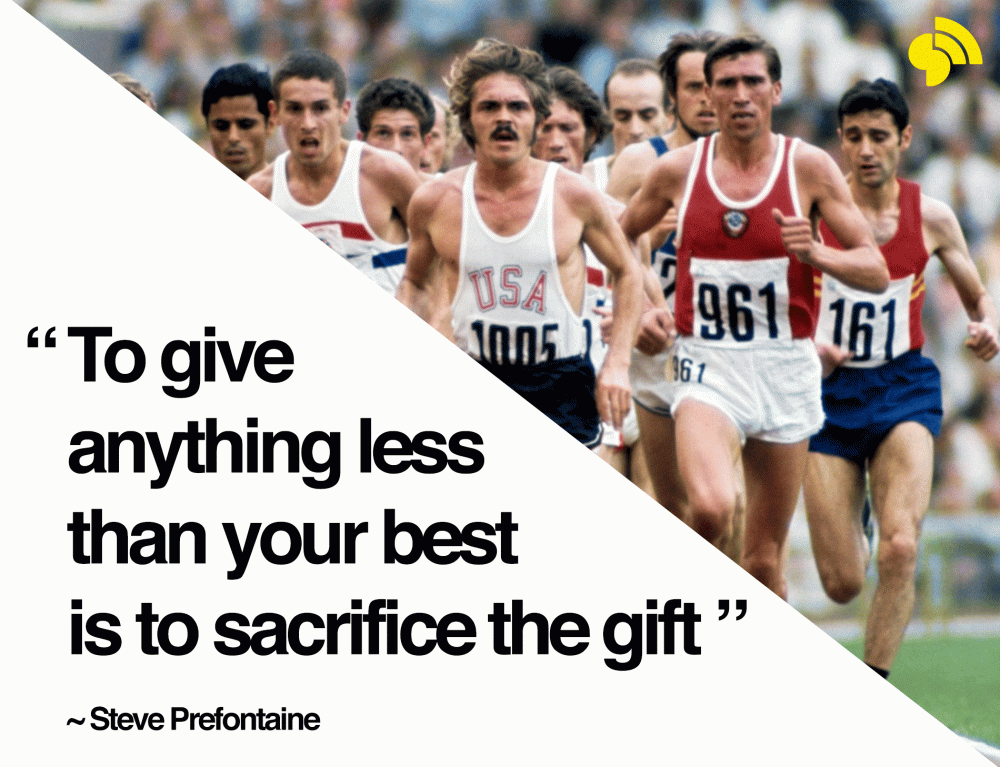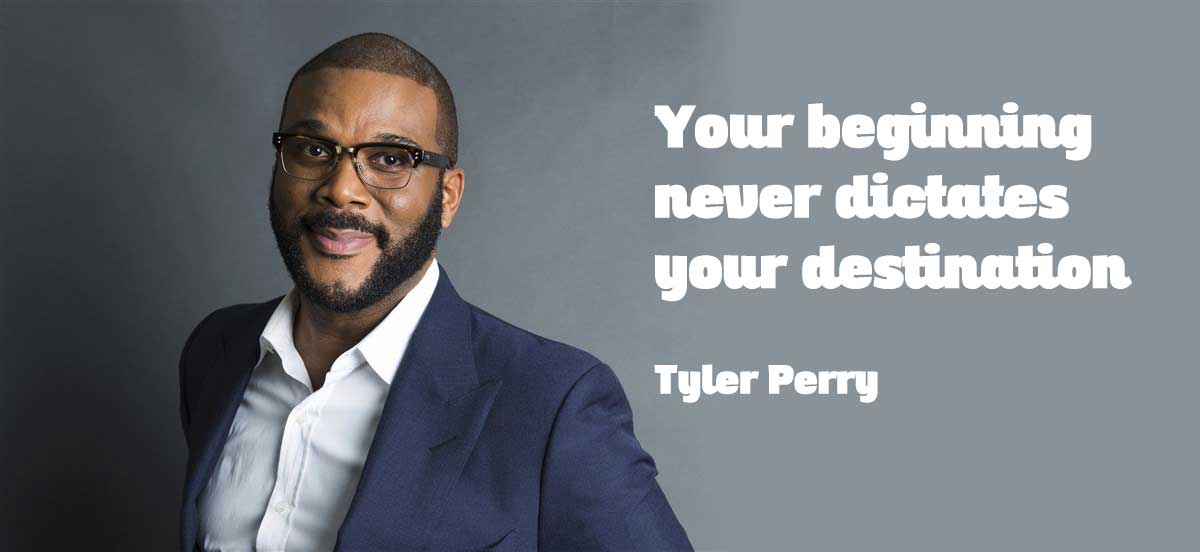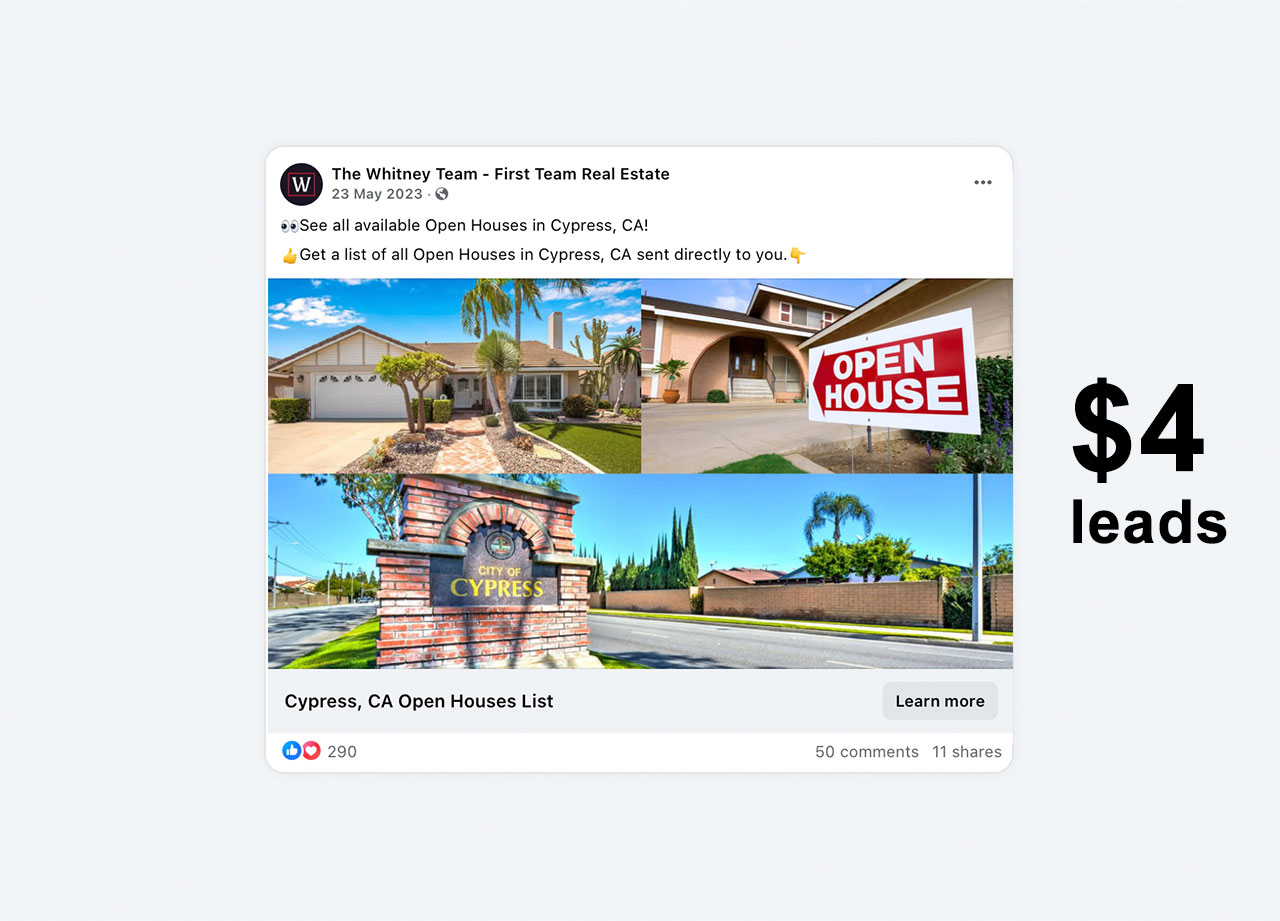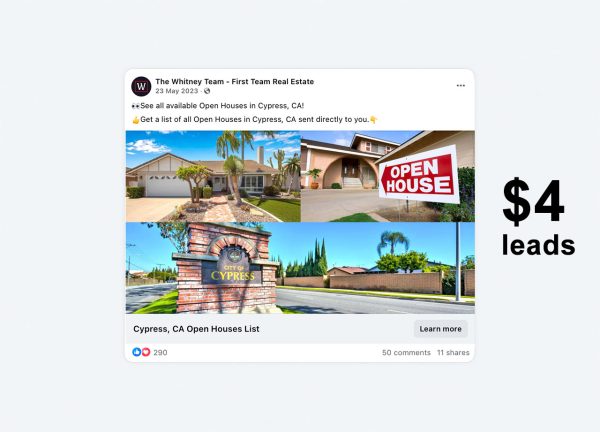Your beginning never dictates your destination
Tyler Perry
When you look at people who are successful at business and real estate, what do they have common? They have a long term mentality. They have grit.
Tyler Perry, actor, writer, producer, comedian and director, invested his then life savings of $12,000 to pay for his first theatre show in 1992. He thought 2500 people were going to show up. 30 did. He knew everyone of them. It was a financial failure.
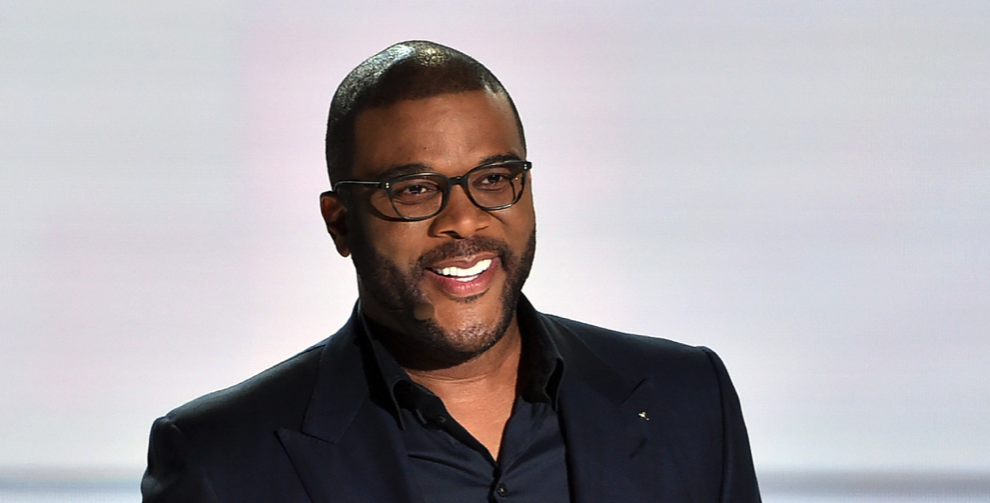
He learned from it and the next year he invested everything he had and did another show. And still almost no one showed up.
He persisted for 6 years rewriting the play and losing money until he finally began to have success. 7 years later he sold more than $100 million in tickets. What if he had quit? And what sustained him to keep going and learning?
This is something I’ve been chewing on and there’s 7 principles that I believe are foundational to success.
1. What motivates you is what sustains you
Probably the most important and often missed part is knowing your motivator. Lots of people want to get rich. That’s great and all, but it’s going to be really hard to “sacrifice” for years if there’s no payout along the way.
“I’ve never chased money. It’s always been about what I can do to motivate and inspire people.” Tyler Perry
There’s nothing wrong with looking to famous people and aspiring to have a lifestyle like theirs. But if it’s our primary motivation it can make it hard to succeed. There’s this famous marshmallow study on delayed gratification. Researchers looked at how long a child could delay eating a marshmallow and years later how well they did on their SAT scores. There was a direct correlation. Delayed gratification is a skill that can be developed.
If your motivation is to help others it’s much easier to stick with it. Because you can see the reward as you go. If your motivation is to build relationships, again it’s much easier to sustain your journey. If your motivation is to learn, you’ll find yourself refueling as you grow. The best part is that you can cultivate a motivation. It’s 100% your choice. And having a motivation that is intrinsically rewarded makes it much easier to sustain the journey.
2. Allow the option to reset expectations
Tyler Perry shared that he expected 2500 people to show up to his first event. He was going to sell out the theatre and it was going to be a financial success. That didn’t happen.
When we set big expectations we are setting ourselves up for disappointment. But it’s completely arbitrary. This is an expectation we’ve made up in our minds. I like how Alcoholics Anonymous puts it, “Expectations are premeditated resentments.”
Allow yourself the freedom to set big dreams and the ability to get more experienced as you grow.’
3. Throw away timeframes
“A genius! For 37 years I’ve practiced fourteen hours a day, and now they call me a genius!” – Pablo Sarasate
You’re already hungry and passionate. So you’re going to put everything you can into what you are doing, irregardless of a timeframe. A timeframe is just another version of an expectation. Sometimes we get caught up with milestones. And when we don’t hit that milestone it can feel like the air is suddenly pulled from our sails. It’s a horrible feeling and it can take a minute to pick oneself up and recover energy. For some people when they miss that timeframe it’s enough for them to stop entirely. Yet, it’s completely avoidable.
You may have heard a friend say, “My goal is this by the age of 30.” Well they may hit their goal by age 30 or they may hit it by age 45. Does it matter? If the goal was important enough and they are going as fast as they can then the time it takes to reach it shouldn’t matter. Instead set big dreams without timeframes. One day you’ll look back and be blown away by how far you’ve come.
4. Celebrate the wins, no matter how small
“Remember to celebrate milestones as you prepare for the road ahead.” -Nelson Mandela
We learned this at StreetText. Big goals take time. And weeks turn into months which turn into years. We do something called Crafternoons where every Friday we try a craft beer or cider and share our wins for the week. When we started to celebrate the little wins along the way it was hard at first. But soon it became easy. Now we do it without much thought. And suddenly there’s a refill of energy for the next week. It tells the brain that everything you just did was worth it.
5. Let go of any emotional burden
“Forgiveness does not change the past but it does enlarge the future.” – Paul Lewis Boese
Pack light.
It’s way easier to move fast with a light back pack. Again, this is something Tyler Perry talks about. Every time he did one of his shows he not only learned from the experience he learned how to forgive. Until one day he felt personally challenged to forgive some people in his life. When he did that his business grew faster.
I don’t know exactly why this works but it does. Forgive people quickly. Unforgiveness is the poison we drink thinking it will hurt another. Let it go.
“When you haven’t forgiven those who’ve hurt you, you turn your back against your future. When you do forgive, you start walking forward.” – Tyler Perry
There are some big hurts that aren’t so easily forgiven. Why? Because they pop up in the mind while driving. Here’s what you can do. Catch the thought. Stop yourself. And choose to think of something else. When it comes back, do the same thing. It will take time but you will eventually forgive the person or situation.
I was listening to a podcast with the co-founder of SoulCycle. She said they actually implemented something like this in their office. No one was allowed to carry a negative emotion home with them. They had to confront it or bring it up to a team member before the end of the day.
How much faster can people move when they aren’t carrying emotional burdens.
6. Choose gratitude
“When I started counting my blessings my whole life turned around.” – Willie Nelson
Every time you think of it say something you’re grateful for. Write it down even. If you’re discipline enough write down 1-3 things you’re grateful for everyday. *I used to do this and the benefits were incredible.
Here’s a life hack. Choose things that you’re grateful for without comparison. For example, some people may say, “I’m grateful to eat today, some people don’t have food.” That form of gratitude depends on the bad situation of another person. It’s super common but it’s not good.
Instead, focus on being grateful for being given a new day. Or for a personality trait of a partner. Or for a thoughtful act. Or for relationships. Or for any number of things. There are so many things to be grateful for.
Gratitude will reinforce a sense of purpose and hope in life and your future.
7. Victor not a victim
”The best day of your life is the one on which you decide your life is your own. No apologies or excuses. No one to lean on, rely on, or blame. The gift is yours – it is an amazing journey – and you alone are responsible for the quality of it. This is the day your life really begins.” – Bob Moawad
This one thing, if you understand this, you will find yourself free to do anything.
You’re the agent of your destiny.
Gandhi said, “Be the change you wish to see in the world.” You have total control over your actions and reactions to your circumstances.
The sooner you understand this the sooner you will see the fruit of it.
Some people like retired Navy Seal officer, Jocko Willink talk about “Extreme Ownership.” In it he shares a personal story about being tasked with finding who was at fault for friendly fire. Instead of blaming anyone else he took the blame personally. It’s a hard lesson to learn. How can I take the blame for something I didn’t do? I wasn’t calling the shots? I wasn’t there? … But for Jocko he realized he was the leader, and ultimately if he was going to be able to change the systems to prevent the event from happening again in the future he needed to own his failure of leadership.
If you don’t believe you are responsible for something then how can you be responsible for changing it? By not being responsible someone is taking the position of the victim. By moving into being responsible they take the position of the victor. A victor can accomplish anything.
It’s liberating when you understand that you have the capacity to influence the world around you.
Conclusion
I actually wrote this article twice. I forgot to save it the first time. And then when I had time to reflect I was grateful, because the content here is too important to simply write and press send. Having the time gave me a chance to hopefully make it better.
I hope you will save it. Think on it. It isn’t the comprehensive list. These are the lessons I’ve learnt in the past 15 years. And I believe they are critical to sustaining the journey towards your success.
